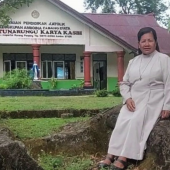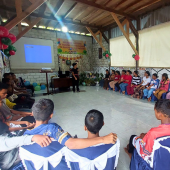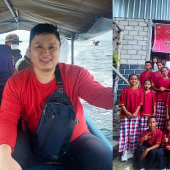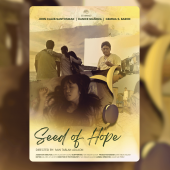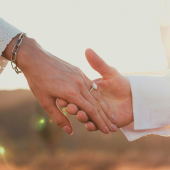Indonesian Church promotes Interfaith Synod of Tolerance
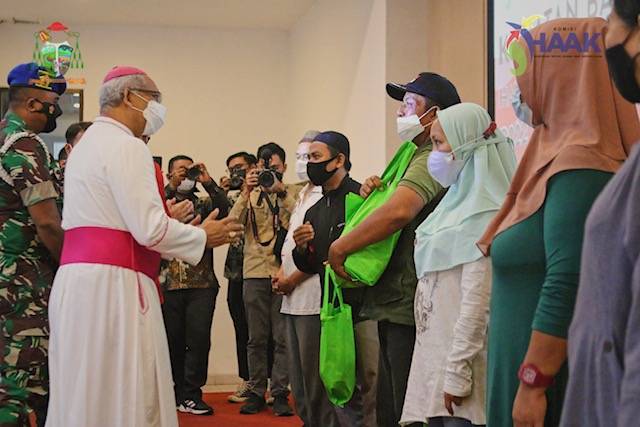
The Commission for Interfaith Relations and Beliefs (HAAK) of the Diocese of Bogor held a social service event with the theme "Synod of Tolerance: Towards an Advanced Indonesia, Strong Indonesia" on February 4.
The event was held in St. Francis of Assisi, Bogor, Indonesia.
In its official statement to RVA News, HAAK chairman Father Dionnysius Manopo emphasized that the implementation of the Synod of Tolerance is in conjunction with the celebration of the International Day of Human Fraternity.
Father Manopo said that the activity was motivated by the fact that Indonesia is a pluralistic society where diversity is necessary. According to the priest, Indonesia should have interfaith dialogue regularly to keep the country peaceful and harmonious.
"Walking together in diversity" is the motto of the Indonesian faithful regardless of their religion, said Father Manopo.
The synod of tolerance aims to provide an excellent opportunity for the Catholic Church to listen to and walk together with our brothers and sisters from different religions and faiths, says Father Manopo.
The priest asserts that this synod of tolerance has allowed the Catholic Church to dialogue with religious leaders, interfaith and social groups, local governments, and young people about how they see the Catholic Church and what they believe needs to be done to strengthen interfaith solidarity.
This activity was attended by Bishop Paschal Bruno Syukur, OFM of Bogor diocese, Mayor Bima Arya, and religious leaders from the Bogor City Religious Harmony Forum (FKUB).
The eminent personalities represented the Interfaith Social Agency (BASOLIA) and the Bogor City Interfaith Youth Forum (Formula). Interfaith Social Agency (BASOLIA) and the Bogor City Interfaith Youth Forum (Formula) also participated in the event.
The Tolerance Synod is a way to appreciate and strengthen our differences, said Bishop Syukur.
"I am glad that some say that differences are inevitable. That phrase seems to want to strengthen us. We see differences as something that supports us, not hinders us. We must walk together in a spirit of tolerance," said Bishop Syukur.
“Besides our differences in character and how strong we are, there are also significant differences in how we work and what we do,” the prelate said.
The Bishop affirms the state, religious leaders, and the community. All of this assures us that these elements must work together if Indonesia is to progress and be strong.
Bishop Syukur says the church is open to non-believers who recognize the church's role in society. This synod of tolerance shows the church's openness.
The prelate hopes the Synod of Tolerance will show the Church as a welcoming companion to people of other faiths.
"I believe that is the message of humanity we fight for. In this way, our faith must be influencing other religions positively.
“This year, we're planning a tolerance safari as part of our efforts to foster unity. Because this year is the Year of the Eucharist and Tolerance,” Bishop Syukur said.
The Mayor of Bogor, Bima Arya, said Bogor has always been a safe and comfortable place to live.
“From my grandfather's time until now, we were like brothers. Bogor is a city where brotherhood exists from time to time, across generations. This is a gift that must be passed down. Don't stop now,” said Arya.
Aside from participant sharing, the synod held social services for the poor.
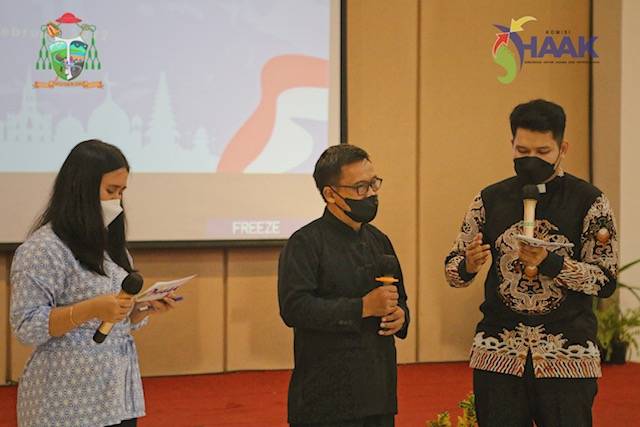
A Youth-Oriented Lesson from the Synod of Tolerance
Father Manopo said that numerous young people are actively involved in the Tolerance synod.
They are involved in every step of the project, from the start to the end, including substantive and technical issues.
There were minor setbacks along the way, but this did not dampen their eagerness to work collaboratively to ensure the success of the synod's tolerance programs.
"This is only one example of young people engaging meaningfully in a synodal church, and I hope there will be many more," Father Manopo added.
Father Manopo said this synod is unique because of how willing the participants were to share their own stories, especially their experiences of discrimination and marginalization because of their faith and ethnicity.
"They were able to turn their traumatic experiences into the motivation to spread tolerance through interfaith communities," Father Manopo said
Father Manopo said that young Catholics show that younger generations play an essential role in promoting interfaith harmony in Indonesia.
It is time for young people to be involved, not just as participants but also as protagonists, from the planning, implementation, and evaluation stages onward.
"It is past time to believe in and involves young people to empower others," Father Manopo concluded.
Indonesia is a diverse society where differences are part of everyday life. It has six official religions and several local languages and ethnicities. Thus, interfaith dialogue is required to maintain social peace and harmony.
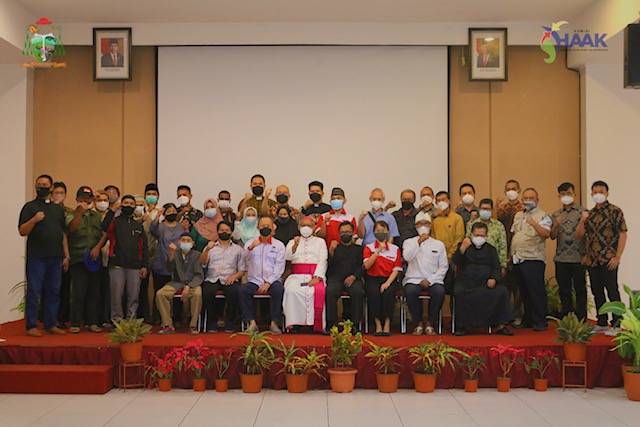
Radio Veritas Asia (RVA), a media platform of the Catholic Church, aims to share Christ. RVA started in 1969 as a continental Catholic radio station to serve Asian countries in their respective local language, thus earning the tag “the Voice of Asian Christianity.” Responding to the emerging context, RVA embraced media platforms to connect with the global Asian audience via its 21 language websites and various social media platforms.









